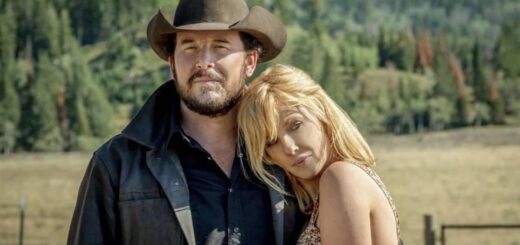The New Daughter: Kevin Costner Movie Ending Explained
The New Daughter Ending Explained: A Terrifying Transformation and a Haunting Choice
Kevin Costner, known for his roles in Westerns and post-apocalyptic films, isn’t usually associated with horror. However, he has ventured into the genre a few times, including the underrated serial killer thriller Mr. Brooks and the lesser-known ‘80s slasher Shadows Run Black. One of his more direct horror roles came in 2009’s The New Daughter, where he stars as a father grappling with his daughter’s frightening transformation.
In The New Daughter, Costner plays John, a divorced novelist who moves with his two children, Louisa (Ivana Baquero) and Sam, to a new house in the countryside. John struggles with the pressures of single parenthood, a situation made worse when Louisa begins exhibiting strange and unsettling behavior. This behavior seems linked to a mysterious mound near their home. As John investigates, he discovers that the previous owner vanished under mysterious circumstances and learns about the existence of strange, ancient creatures called the “mound-walkers.”
What Happens in the Ending of The New Daughter?
The climax turns terrifying when the mound-walkers attack the house. Louisa has become fully possessed by the creatures and is responsible for the death of Sam’s teacher, Cassandra (Samantha Mathis). John fights off the creatures and descends into the mound with his shotgun to rescue Louisa. He manages to pull her out, but then witnesses his daughter beginning to transform into one of the mound-walkers.
The film ends on a hauntingly ambiguous note. Remembering his vow never to abandon Louisa as her mother did, John throws a flare onto a fuel canister, igniting a massive explosion meant to destroy the mound. While this likely obliterates the mound-walker nest, it’s unclear if John or Louisa survive. The movie closes with Sam watching the fire from a distance. A shadowy figure approaches him, and as Sam calls out “Daddy?” the growl of a mound-walker is heard. The screen cuts to black, leaving the fate of the characters uncertain.
The True Meaning Behind the Ending
The ending leaves much up to interpretation. It seems unlikely that John would sacrifice himself while his son Sam remained in danger. Some viewers hope the approaching figure might be John returning to protect his son. However, the film does not show this explicitly.
John’s emotional promise not to leave Louisa underlines the ending’s poignancy and complexity. His willingness to risk everything for his daughter contrasts sharply with the fear of losing her to these monstrous forces. Yet, this raises a paradox: if John truly wants to protect Louisa, might he also risk everything for Sam? The filmmakers seem to avoid suggesting favoritism between the children, adding layers of ambiguity to the conclusion.
On a deeper level, John’s struggle can be seen as symbolic of a parent coping with a child’s painful transition into adolescence. The mound-walkers represent the unknown forces pulling Louisa away from her childhood and from John’s protective grasp. His drastic act could be interpreted as a desperate attempt to hold on to his daughter before she’s inevitably “lost” to adulthood or darkness.
How the Ending Was Received
The New Daughter did not fare well with critics or audiences. It holds a low score on Rotten Tomatoes, with critics giving it a 40% rating and audiences rating it even lower at 24%. Many viewers were frustrated by the bleak and ambiguous ending. One audience member wrote, “I can’t believe I sat through this sometimes engaging film only to be let down by ultimate evil destroying the protagonists! Don’t we have enough of that in real life?”
Critics also pointed to the ending as a major flaw. Andrew Barker of Variety acknowledged the film wasn’t as bad as its marketing suggested but criticized the final act as “ridiculous,” especially disliking the closing shot of the creature looming behind Sam, which he called “appalling.”
However, not all interpretations are negative. Paul Lê of Bloody Disgusting suggested the ending might symbolize the hardest choice a parent can make: John’s decision to possibly perish alongside a child who already feels abandoned by one parent. The ending’s meaning varies greatly depending on individual viewers, serving as either a straightforward horror finale or a more symbolic meditation on parental love and loss.


